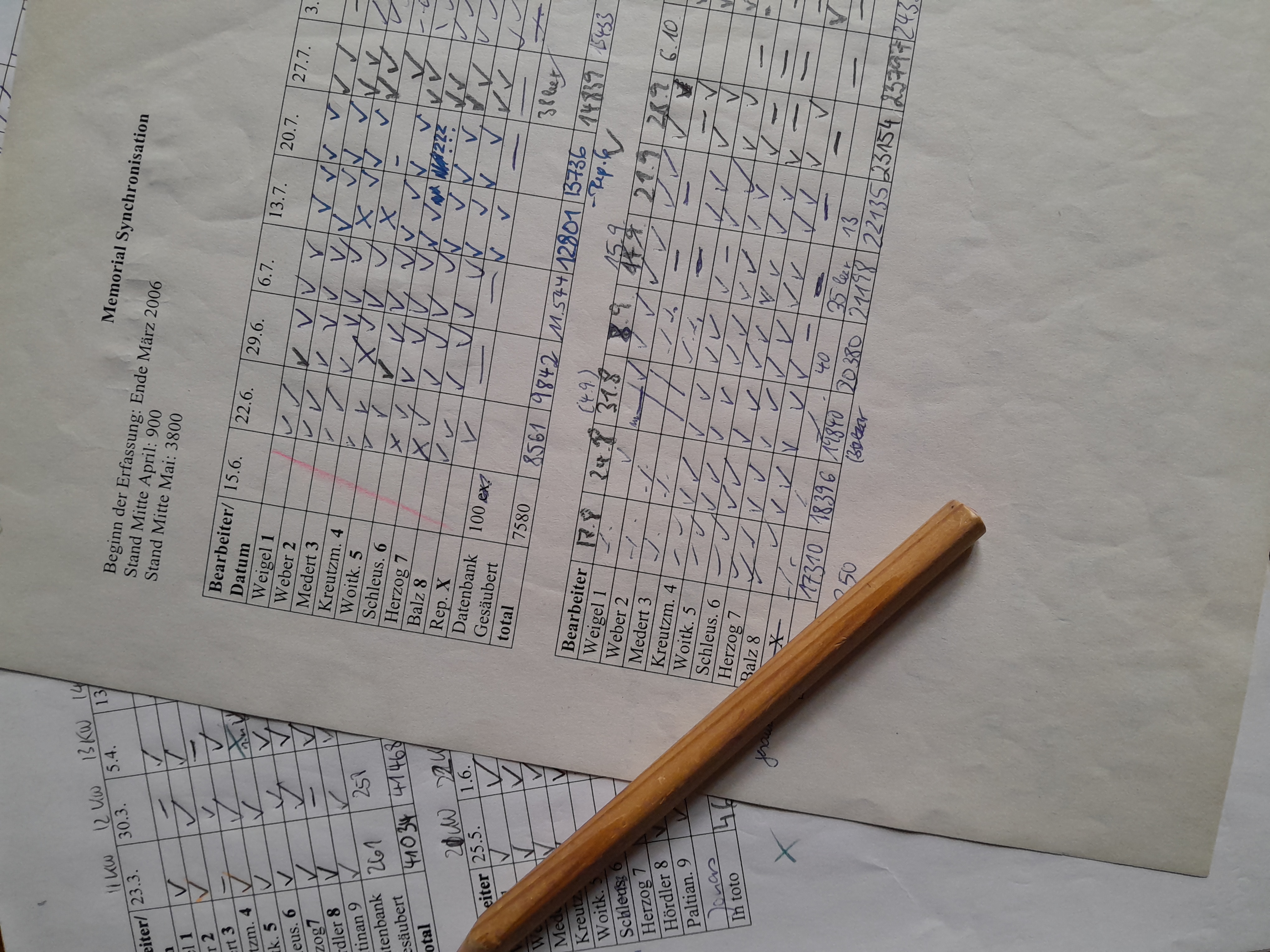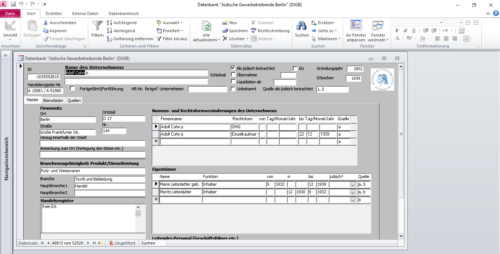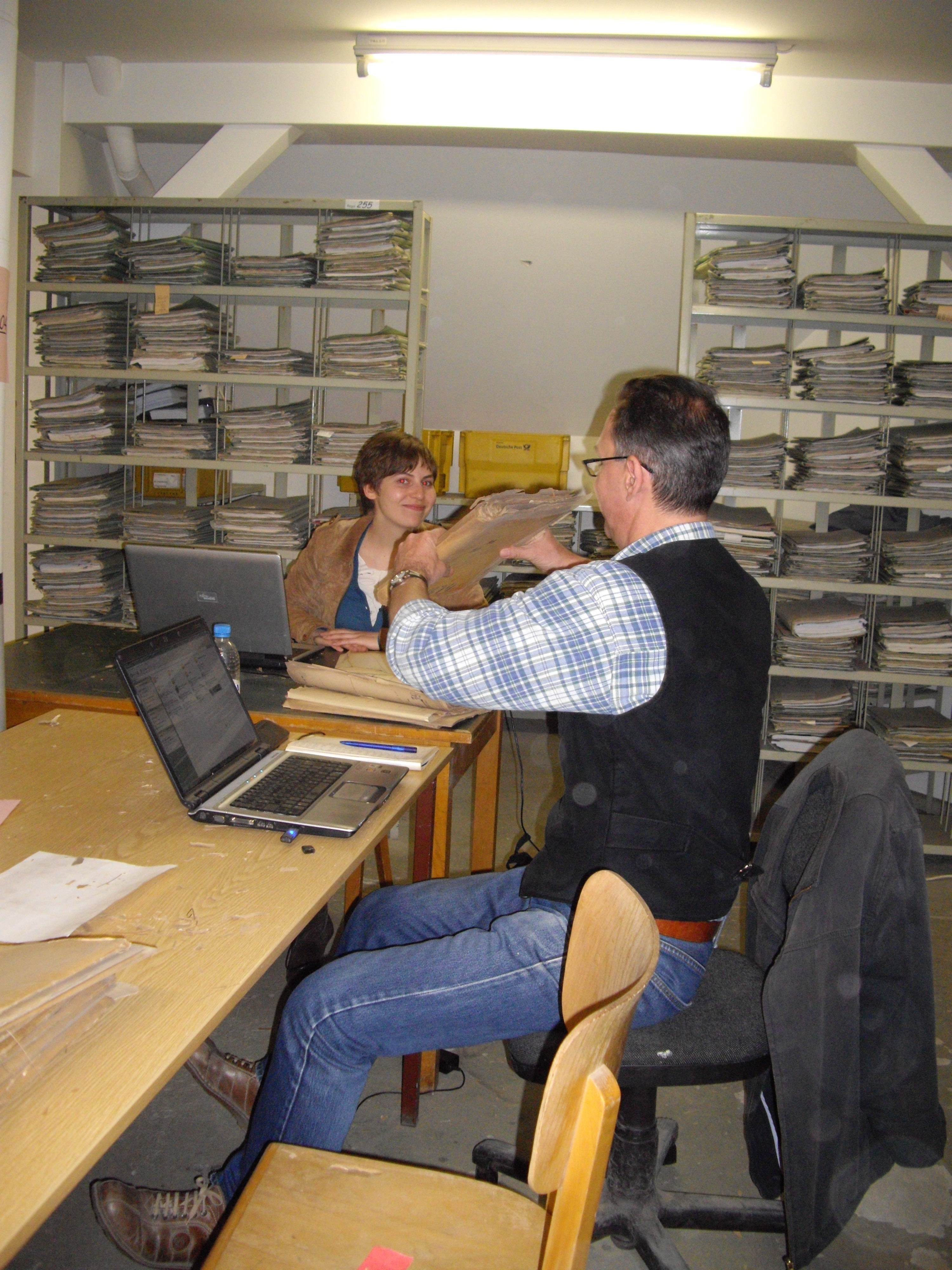Phase 1 (2005-2012)
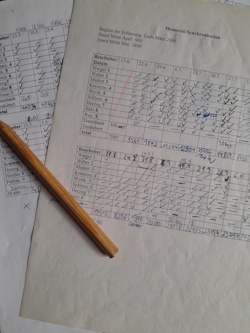
The database was created as part of a research project at the Humboldt University of Berlin by Christoph Kreutzmueller and his team. It is based on a complete record of the entries published in the published in the central trade register supplement of the ‘Deutscher Reichsanzeiger und Preußischer Staatsanzeiger’ (German Reich Gazette and Prussian State Gazette), as well as the analysis of a lot of additional files, contemporary newspapers, address- and handbooks.
Duly referenced, all Information about the companies, their address, legal form, business sector, registration and liquidation as well as changes of shareholders and management were recorded.
In the first phase around 8,000 companies were identified that the National Socialists considered to be Jewish. The database also contains the raw data of around 44,000 other companies for which it could not be assumed or (reliably) proven that they were persecuted as Jewish.
Since its publication, the database has become an important tool for family research and economic and social and social history.
Phase 2 (2021-2024)
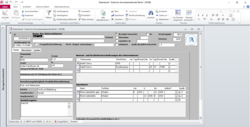
However, the technical foundation of the database was increasingly outdated and unstable. Thanks to the [Rothschild Founddation Hanadiv Europe] we were able to change this - with the support of the [Aktiven Museum, Faschismus und Widerstand in Berlin e. V.]. As part of a fundamental revision, we were able to permanently save the data in a web-based format and publish it in a more accessible design.
We were also able to supplement the database and add information (and identifiers). To make the disasters more visible in the statistics, we also scrutinised a few dozen companies from the database and wrote short biographies about them.
Newly compiled, the database now combines the most important basic data on over 10,000 companies that were demonstrably considered Jewish from 1933 onwards and were therefore persecuted!
Editors
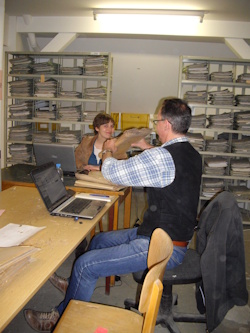
During the first project phase the following colleagues were involved: Eva Balz, Gerd Herzog, Stefan Hördler, Henning Medert, Anne Paltian, Jan Schleusener, Elisabeth Weber, Bjoern Weigel and Peter Woitkowski. During the second phase Bethan Griffiths and Sophie Eckensthaler attended the project.
